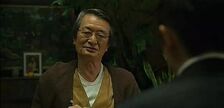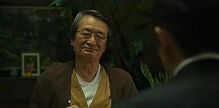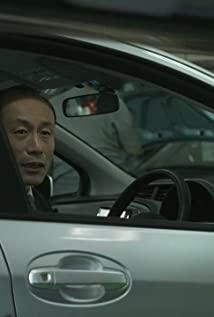"The Analects of Confucius" has a cloud: life and death have fate, wealth is in the sky. Confucius also said: If you don't know life, how can you know death. These words all make sense. How to understand different opinions, everyone has their own views, and there is no need to force them to be the same. Whether you care about life or death, or don't care about it, no one can get away from life and death anyway.
Life is not up to you; death seems to be up to you, but for most people, in fact, death is up to you, especially after death. People's afterlife, ancient and modern, both at home and abroad, attach importance to it, otherwise, there would not be so much attention, and there would not be a movie like "The Undertaker".
In fact, as soon as a person dies and closes his eyes, he doesn't know anything. Of course, you have to say that you will be reborn in the Western Paradise or go to heaven and hell, and I can't help it. But in any case, the deceased can't control his own affairs, whether it is a solemn funeral, cremation or burial with a formal funeral, cremation or burial, or a random wrapping of a broken seat and throwing it on the burial mound, in fact, it is related to the deceased. It doesn't matter. The aftermath is for the living to see. First, it is etiquette. Second, it is the attitude of the living to the dead. The third represents the importance we attach to the important event of death.
The matter behind him is "ceremony", -- the person of ceremonies, the rituals, the degrees, the laws, the paradigms, the standards, the rules, and so on. The burial is an important part of the funeral ceremony. To put it bluntly, it is to let people walk with dignity and dignity. Therefore, the mortuary who deals with the deceased, although usually makes people feel a little embarrassed and a little unacceptable, but once it is "a major event", it is indispensable. In the film "The Undertaker", there is a description of this change in psychological attitude, and even the protagonist Dawu Kobayashi himself was a little emotional at first.
Whether there is such a profession in our funeral home is not clear, but there are make-up artists for the beauty of the deceased. Generally speaking, it is still done by the relatives and friends of the deceased, unlike Xiaolin Dawu. profession. Back then, I had done this thing, wiping the body that seemed to be still warm and wearing clothes from a long journey for a friend of mine who died young. Although I was far less professional than Kobayashi in doing those things back then, my attitude was equally pious, so when I watched this movie, I kept resonating and sighing from the bottom of my heart, and I definitely felt a sense of death. Some new understanding, and even want to retire in the future to take a job in a funeral home, of course, a volunteer.
We often say that art comes from life and is higher than life. Therefore, we often feel that movies copy life, but in fact life is also copying movies in many cases. Kobayashi-like stories, although they seem very life-like at first glance, the plot arrangement is still very cinematic. No coincidence can make a story, and no coincidence can make a screenwriter. Therefore, the film must be interlocked in a limited time. The sword hanging on the wall in the first act cannot be a decoration, and it must be used in the third act no matter what. One use is like the pebble picked up from the river beach in this movie, and the reconciliation between life and death between father and son at the end.
If I hadn't seen those salmon migrating against the current and laying their eggs in their hometown when they died, if there weren't a series of touching burial ceremonies, if not for the words and deeds of the president, if not for the sudden death of the bathhouse grandma, Kobayashi might He will not complete the social role transition from an unemployed cellist to a professional mortuary. His childhood friend and Mrs. Kobayashi may not agree with and accept this transition from Kobayashi-like, and Kobayashi-like will not leave his wife and children in his early years. , Looking for another new love, the father who has been silent for a long time completes the final reconciliation between life and death, and will not find the pebble he gave to his father from his father who is separated from life and death, and will not see his father in tears. It had been blurry but suddenly became clear.
As a result, the story is complete, the life like Xiaolin is complete, and the film also successfully won the Oscar for Best Foreign Language Film. To be honest, at first, I thought the happy ending of this movie was a bit cliché, but the more I think about it these days, the more I feel that the ending of the movie is actually reasonable and ingenious. If it is not complete, Kobayashi will not understand the meaning of life and death. It will not be fully manifested, and we, the bystanders, will be trapped in the heavy and unable to liberate. And the original intention of this film should be to let all beings "let go", rather than carry the burdens and pains that they have to bear in their lives.
As a result, in the beautiful and soothing music with a little sadness, we saw blue sky, green grass, clear rivers, white snow-capped mountains, and of course cherry blossoms blooming like clouds and drifting like snow, and the previously dark and gloomy picture gradually became brighter. stand up. The slow surging of the emotions implied in the plain story, which was told in a succinct manner, finally converged into a shocking flow. Those stories about life, death, and love thus show a strong sense of Zen, pointing directly to the heart, making people feel a deep or gentle movement, and then slowly filled with warmth, or joy after enlightenment.
View more about Departures reviews









